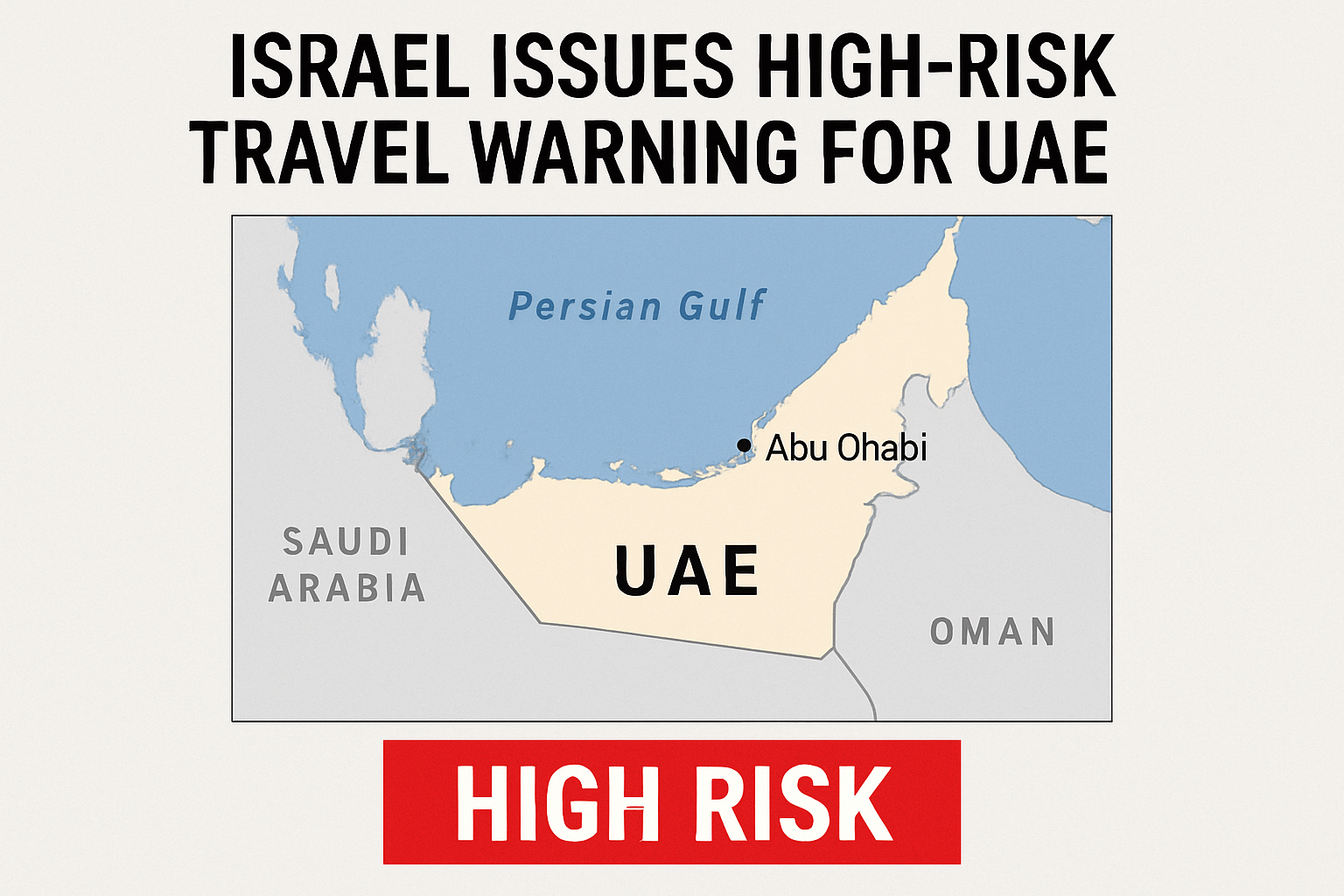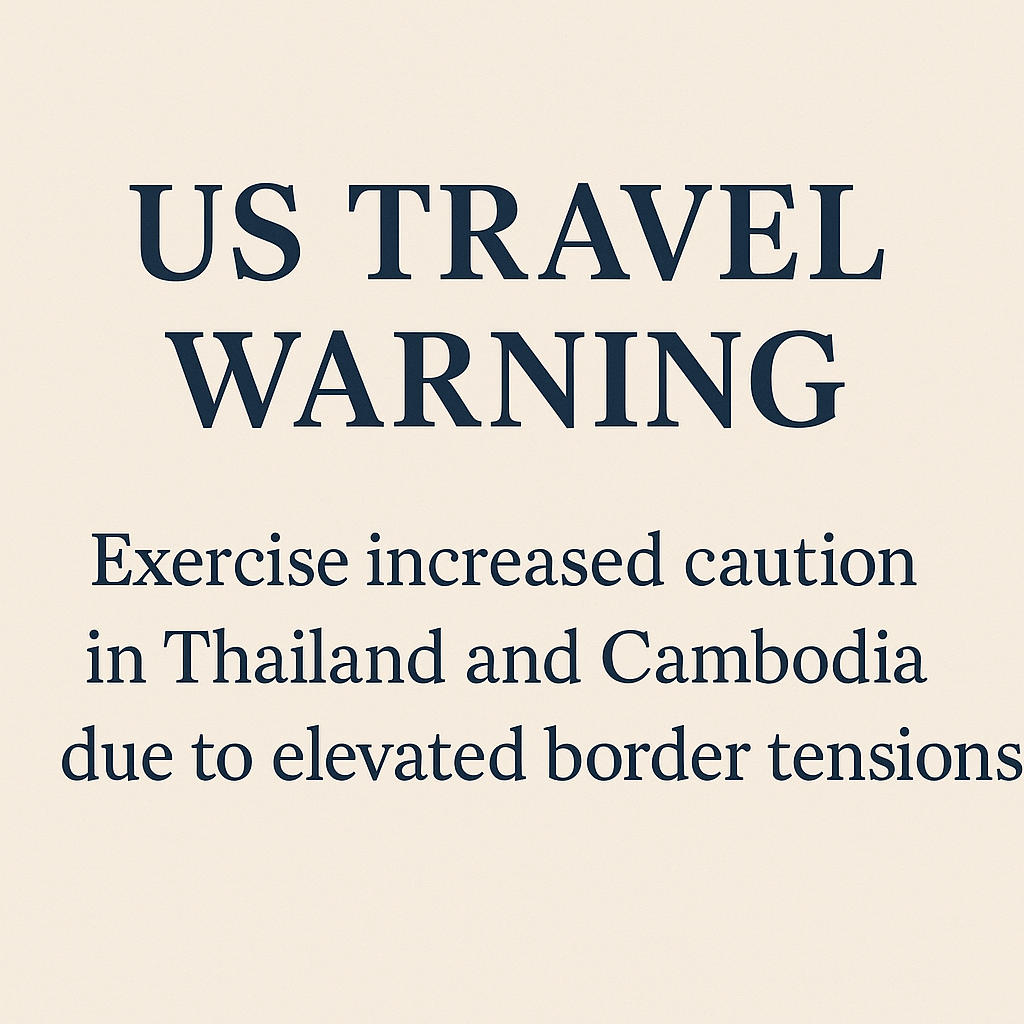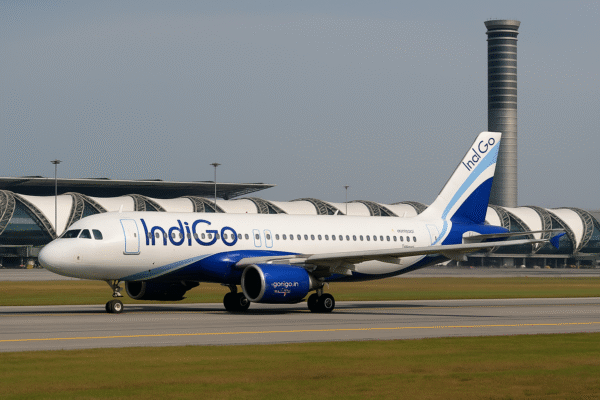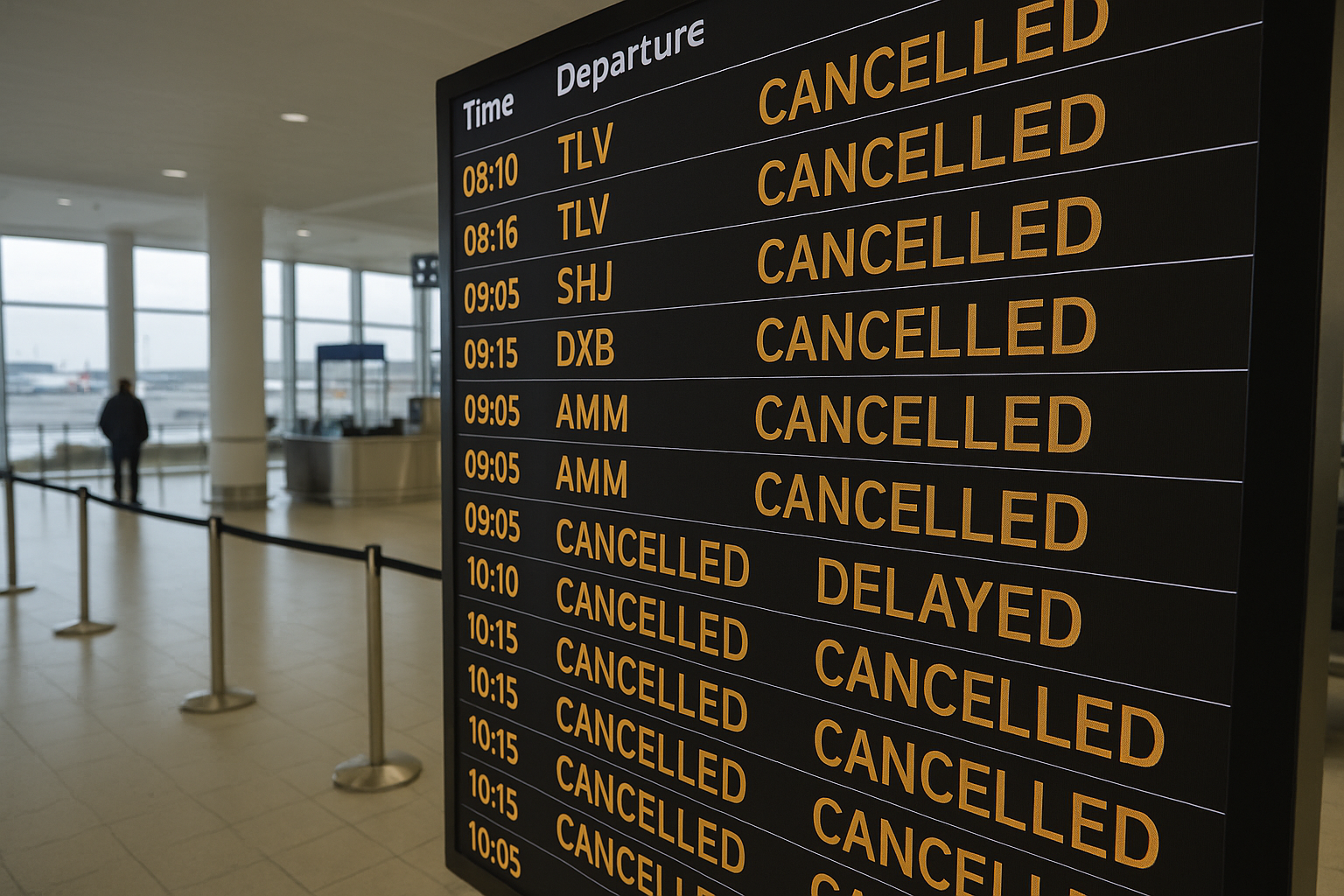TEL AVIV, ISRAEL — Tensions between Israel and Iran have plunged the Middle East into aviation chaos, with more than 700 flights canceled or delayed across major regional airports, including Ben Gurion International in Israel, Dubai and Sharjah in the UAE, and Queen Alia International in Amman, Jordan. The widening conflict has triggered airspace closures, missile warnings, and rerouted airline operations, bringing critical air corridors to a near standstill.
As missile exchanges between Israel and Iran escalate, global airlines like Emirates, British Airways, Qatar Airways, United, Air France, and Air China are grounding flights or suspending operations altogether. Government advisories have now been issued by the UK, France, and Germany, warning travelers against all non-essential travel to the region.
Ben Gurion Airport Fully Shut Down Amid Rising Threats
At the epicenter of the crisis is Ben Gurion International Airport in Tel Aviv, where civilian flights have been suspended indefinitely. On Monday alone, 200 flights were canceled, including 74% of all El Al departures, and total shutdowns were reported for airlines such as Delta, Etihad, Hainan, and Georgian Airways.
Israeli national carrier El Al has suspended its operations through June 19, with extended cancellations across Europe and Asia, affecting cities like Berlin, Tokyo, Lisbon, Krakow, and Barcelona. U.S. carriers United Airlines and Delta Air Lines have halted their Tel Aviv services through July and August, respectively.
Dubai and Sharjah Airports Strained by Rerouted and Grounded Flights
In the UAE, airspace remains technically open, but Dubai International Airport has been overwhelmed by redirected flights and congestion. The airport logged 344 delays and 58 cancellations, severely impacting Emirates and FlyDubai.
- FlyDubai: 42 canceled flights, 107 delays
- Emirates: 7 canceled flights, 145 delays
Emirates has suspended operations to Amman, Beirut, Baghdad, and Basra through June 30, with Tel Aviv flights paused until further notice. Other international carriers such as British Airways, Air India Express, Iran Air, and Mahan Air are either delaying or halting service due to airspace volatility and security concerns.
At nearby Sharjah International Airport, low-cost carriers bore the brunt of disruption. Air Arabia alone accounted for all 27 cancellations, while Fly Jinnah, IndiGo, and PIA reported scattered delays due to rerouting and ground control limitations.
Jordan’s Queen Alia International Also Impacted
In Amman, Queen Alia International Airport experienced 50 cancellations and 19 delays, primarily affecting Royal Jordanian, which canceled 17 flights and delayed 11 more. Ryanair, Saudia, Pegasus, Etihad, and Qatar Airways also adjusted schedules amid fears of missile strikes and restricted airspace over Iraq and Syria.
The situation has complicated air navigation across Levant and Gulf corridors, vital for connecting Asia and Europe. Airlines have responded by rerouting flights through northern Africa, increasing fuel usage, flight times, and passenger dissatisfaction.
Airlines Cancel Routes and Delay Operations as Crisis Spreads
As tensions ripple across the region, airlines are implementing immediate safety precautions:
- Qatar Airways: Suspended routes to Iran, Iraq, and Syria
- Etihad Airways: Halted flights to Tel Aviv through June 22
- Lufthansa and Air France: Suspended services to Tel Aviv and Tehran, with Lufthansa also pausing routes to Beirut, Erbil, and Amman
British Airways, easyJet, and Ryanair have fully withdrawn operations to Israel, following foreign ministry directives and internal safety evaluations.
Over 40,000 Tourists Stranded in Israel
More than 40,000 tourists remain trapped in Israel as the nation’s airspace remains locked down. Once-bustling tourist hubs like Jerusalem and Tel Aviv now echo with air raid sirens, not city tours. Missile alerts have pushed tourists into shelters as hotels, cafes, and cultural venues shut their doors.
The Tel Aviv Pride Parade, a major annual tourism draw, has been canceled. Access to historical sites, including Jerusalem’s Old City, is restricted. Public transport has been partially suspended, and overland exits to Jordan are congested, costly, and considered risky.
Israel’s Ministry of Tourism has launched a 24/7 assistance hotline, but logistical chaos and rising expenses are pushing travelers to desperation.
Governments Issue Travel Warnings
Governments worldwide are rapidly advising citizens to avoid travel to the region. The UK Foreign Office has warned of the “potential for rapid deterioration,” while France and Germany have echoed similar guidance for Israel, Iran, and surrounding nations.
The U.S. State Department has issued a Level 4 travel advisory, urging Americans to avoid all travel to conflict zones and monitor local embassy alerts.
Summary of Regional Airport Disruptions
Ben Gurion International Airport (Israel)
- 200 cancellations, 0 delays
- Airport fully closed to civilian traffic
- Major airlines affected: El Al, Delta, United, Etihad, Georgian Airways, Air France, KLM
Dubai International Airport (UAE)
- 58 cancellations, 344 delays
- Operational but overwhelmed
- Airlines impacted: Emirates, FlyDubai, Air China, British Airways, Qatar Airways
Sharjah International Airport (UAE)
- 27 cancellations, 36 delays
- Air Arabia hit hardest with 100% of cancellations
Queen Alia International Airport (Jordan)
- 50 cancellations, 19 delays
- Affected carriers: Royal Jordanian, Ryanair, Air Arabia, Saudia, Emirates
A Widening Crisis in the Skies
What began as a localized military exchange has now upended regional aviation, rerouted international traffic, and paralyzed tourism across the Middle East. The disruption is not only logistical—it poses long-term challenges for travel confidence, tourism revenue, and international airline planning.
With no clear resolution in sight, airlines are encouraging passengers to monitor updates closely, reschedule travel, and expect continued delays. The Israel-Iran conflict has transcended borders, bringing global air travel into its volatile orbit.
For more travel news like this, keep reading Global Travel Wire https://www.globaltravelwire.com/





















